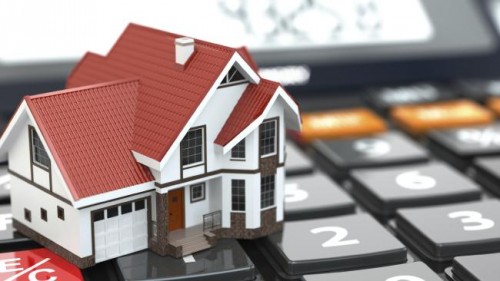How Much Money Do You Need Upfront for a Mortgage?
Posted by : Mala Lal | Posted on : Monday, June 27, 2016

Getting ready to purchase your first home is definitely an exciting time, but it can also be extremely confusing to go through the home mortgage process for the very first time. One of the biggest questions that first-time homebuyers ask is with regards to how much money they really need to have upfront in order to qualify for a mortgage that they can afford. In addition to speaking with a financial professional or mortgage pro, continue reading for a few tips that will help you determine how much money you’ll really need to save up in order to purchase a house that you’ll love.
The Factors to Consider
Ultimately, the amount of money that you’ll need to save for your home mortgage will depend upon a few factors, as no two buyers will have the same financial situation or the same expectations when it comes to how much they want to spend and what type of house they wish to purchase. Remember, different types of homes will be in different price brackets, so it’s a good idea to start off by determining what homes you like and how much they cost. This should help you figure out how much you can really afford. Then you’ll need to consider the existing mortgage interest rates and refinance rates in NJ to figure out if you can afford the monthly payments on a house after you’ve factored in the down payment that you’ve saved up.
Don’t Forget About Closing Costs
When you’re ready to purchase a home and take out a mortgage that you’ll end up paying off in 15 or 30 years, you’ll also need to consider the closing costs, which you’ll need to pay upfront in addition to your down payment. The bank will end up paying off the balance of the house’s price with the loan that you’re taking out, and you’ll be required to make monthly payments in order to repay the bank over time.
On the other hand, if you’re planning on purchasing a house outright in cash, you won’t need to worry about a down payment, a mortgage, or interest rates. Instead, you’ll need to pay the entire purchase price in cash, plus the additional closing costs and any costs related to necessary repairs that you’ll have to make right away.
Working with Percentages for Down Payments
In order to determine just how much cash you need after you’ve determined how much house you can afford, you can deal with percentages to make the picture clearer.
The majority of lenders out there will expect you to put down a minimum of 20% of the house’s sale price as the down payment. So, for example, if you are going to be purchasing a home that is worth $200,000, you will need to have a down payment of $40,000. You can certainly put down more than 20% if you wish, and that will actually help to reduce the amount of money that you will owe each month, thereby making your mortgage more affordable.
However, if you are having a hard time coming up with 20% of a house’s sale price, lenders also have other options that allow you to put down a smaller percentage. In this case, though, you will need to pay an additional PMI (private mortgage insurance) fee.
Working with Percentages for Closing Costs
As far as closing costs go, things can become quite complicated. These costs will typically run anywhere from 2% to 3% of the total loan amount. So, as an example, if you are taking out a $200,000 mortgage, you will end up having to pay anywhere from $4,000 to $6,000, depending upon the percentage offered by the lender. This is on top of the down payment that you already owe.
Be aware that the closing costs on a home purchase will actually vary between states, and there could also be differences between lenders and between loans. Doing your research ahead of time will allow you to better understand your market and determine how much money you need to put aside as cash before you can take out a mortgage. You can, for example, even ask a real estate agent or a real estate attorney to gain additional insight.
Ultimately, buying a home can be a really stressful experience, especially when it comes to crunching numbers. You will need to save up tens of thousands of dollars to cover the upfront costs of your mortgage, so be patient and be smart with your savings plan.
 SU
SU REDDIT
REDDIT







